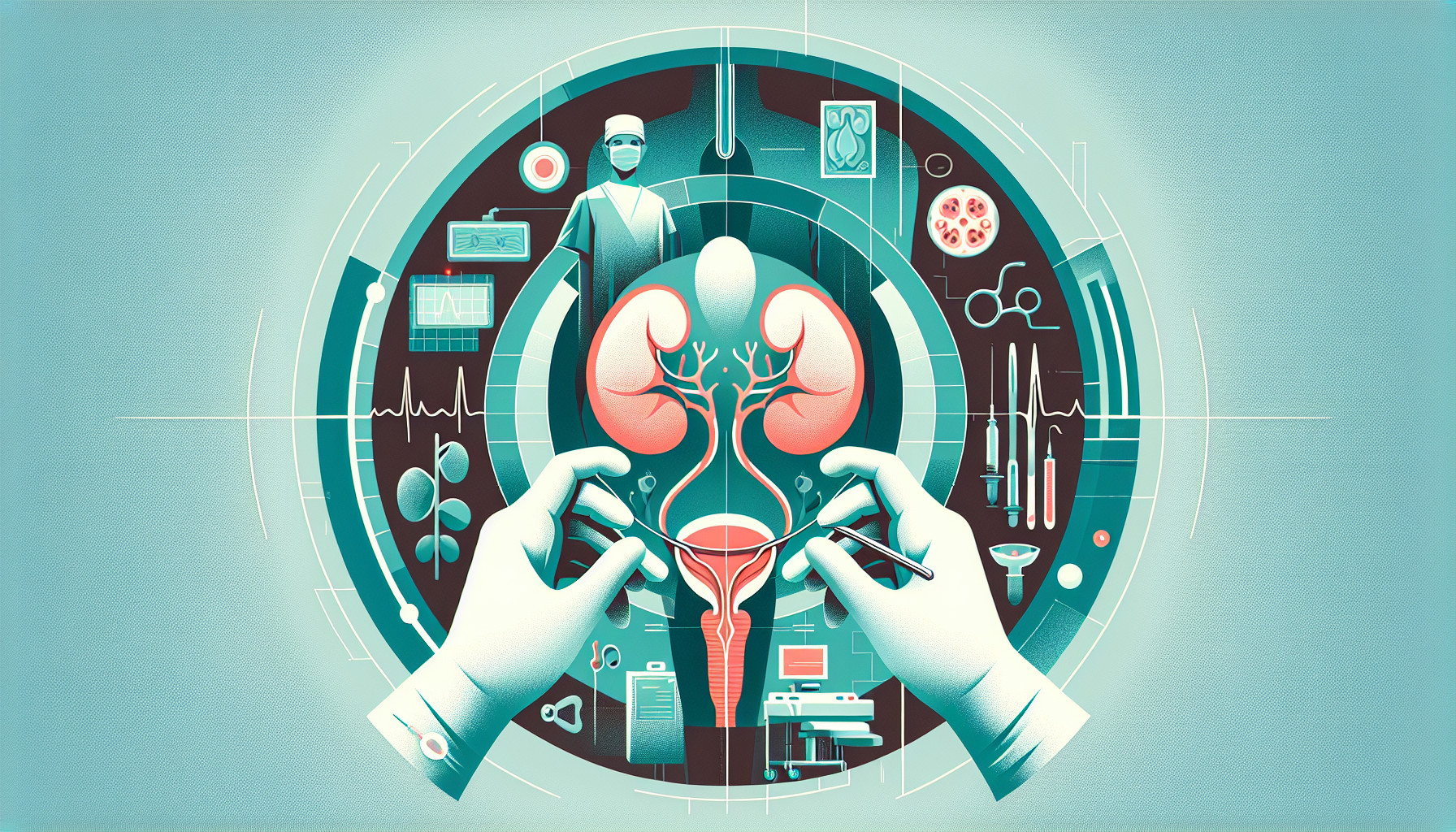Our Summary
This research paper discusses a surgical procedure that allows the bladder to be spared during the treatment of an enterovesical fistula, which is an abnormal connection (fistula) between the intestine and the bladder. The authors of the paper focus on the use of laparoscopy in this procedure, a minimally invasive type of surgery that uses small incisions and a camera to guide the operation. The goal of the research is to explore more effective and less invasive ways of treating this medical condition.
FAQs
- What is bladder sparing surgery?
- What is an enterovesical fistula and how is it treated in relation to bladder surgery?
- What are the benefits of minimally invasive surgery like laparoscopic surgery in bladder operations?
Doctor’s Tip
After bladder surgery, it is important to drink plenty of fluids to help flush out your system and prevent urinary tract infections. Additionally, make sure to follow your doctor’s instructions for post-operative care to ensure a smooth recovery.
Suitable For
Bladder surgery may be recommended for patients who have conditions such as:
Bladder cancer: Surgery may be recommended to remove cancerous tissue from the bladder.
Bladder stones: Surgery may be recommended to remove large bladder stones that cannot be passed through urine.
Bladder diverticulum: Surgery may be recommended to remove a bladder diverticulum, which is a pouch that forms in the bladder wall.
Urinary incontinence: Surgery may be recommended to treat severe cases of urinary incontinence that do not respond to other treatments.
Interstitial cystitis: Surgery may be recommended for patients with severe interstitial cystitis that does not respond to other treatments.
Bladder outlet obstruction: Surgery may be recommended to remove obstructions in the bladder outlet that are causing urinary retention.
It is important for patients to discuss their specific condition and treatment options with their healthcare provider to determine if bladder surgery is the best course of action for their individual case.
Timeline
Before bladder surgery:
- Patient will undergo a thorough medical evaluation to determine the necessity of surgery and to assess their overall health and suitability for the procedure.
- Preoperative tests such as blood work, urine analysis, and imaging studies may be conducted to evaluate the condition of the bladder and surrounding structures.
- The patient may be instructed to stop taking certain medications, avoid eating or drinking for a certain period of time before surgery, and follow specific preoperative instructions provided by the surgeon.
- The patient will meet with the surgical team to discuss the procedure, potential risks and benefits, and postoperative care.
After bladder surgery:
- The patient will be closely monitored in the recovery room immediately following surgery to ensure that they are stable and recovering well from the procedure.
- Pain management will be provided to help alleviate any discomfort or pain experienced after surgery.
- The patient will be given specific instructions on how to care for the surgical incision site, manage any drains or catheters, and when to follow up with the surgeon for postoperative appointments.
- Physical therapy or rehabilitation may be recommended to help the patient regain strength, mobility, and function in the bladder and surrounding muscles.
- The patient will be advised on lifestyle modifications, dietary changes, and potential complications to watch for in the weeks and months following surgery.
What to Ask Your Doctor
- What type of bladder surgery do you recommend for my condition?
- What are the potential risks and complications associated with the surgery?
- How long is the recovery period and what can I expect during the recovery process?
- Will I need to make any lifestyle changes or modifications after the surgery?
- How successful is this type of surgery for treating my condition?
- Are there any alternative treatment options to consider before proceeding with surgery?
- What is the long-term outlook for my bladder function after the surgery?
- Will I need to follow up with a specialist or undergo any additional procedures after the surgery?
- How experienced are you in performing this type of surgery?
- Are there any specific instructions or precautions I should follow before and after the surgery?
Reference
Authors: Hsu JT, Chen KH, Chang HC, Tan JS. Journal: Asian J Surg. 2023 Feb;46(2):1155-1156. doi: 10.1016/j.asjsur.2022.08.022. Epub 2022 Aug 20. PMID: 35999104
